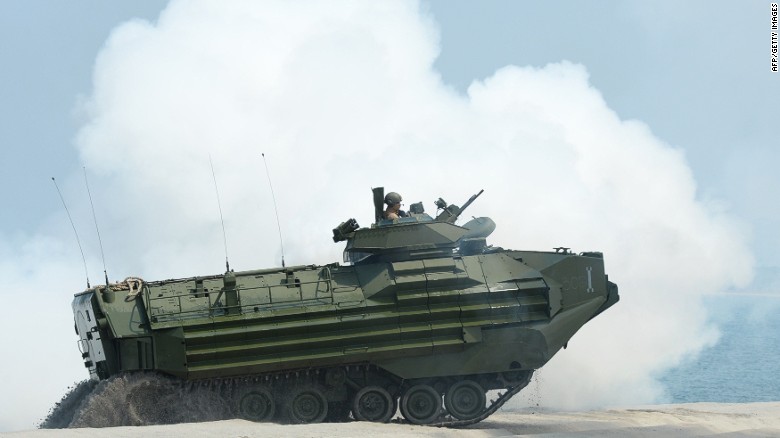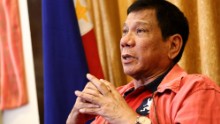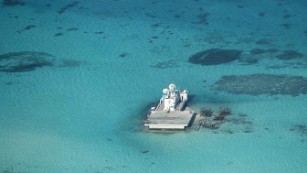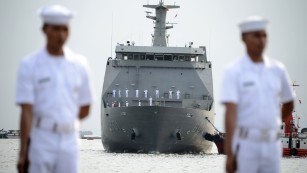Opinion: Philippines stumbling towards dangerous isolation
Shortly after his landslide victory, President Rodrigo Duterte of the Philippines received a phone call from President Obama. In that call, Obama emphasized the shared democratic values that tie the two countries together and underlie the US-Philippines alliance.
Duterte clearly was not listening, and in the most recent in a growing list of unacceptable slurs,he has called US Ambassador to Manila, Philip Goldberg, "a gay son of a bitch."
This comes amid Duterte's ongoing general skepticism regarding the value of human rights -- seen most clearly in his open embrace of violence as part of a push against both drug dealers and addicts.
Duterte's assumption of the presidency was widely predicted to lead to a chill in the bilateral relationship with Washington, with analysts expecting a hedging strategy, seeking to play off the US and China.
Yet Duterte's homophobic slur reveals not a well-conceived strategy to hedge between superpowers, but a country stumbling towards a dangerous isolation.
Shared values strained
Duterte's temperament and policies have strained the shared values that President Obama rightly identified as at the heart of Washington-Manila relationship.
The smooth working of the web of security alliances and guarantees that sustain US power -- and thus the international order -- in the Asia-Pacific is not only secured by aircraft carriers and military bases, however indispensable that hard military power is.
Duterte's comments reveal that US power, and the order it creates, also rests on social bonds of shared values, outlooks and expectations. The US order is strengthened when the values of its partners align with its own, and that order frays when those values are contested.
South China Sea: Hague rules in favor of Philippines over China in maritime dispute
Shared values, as seen underlying NATO, help convince partners of the importance of bearing the costs of the alliance, making them more likely to want to work with Washington as opposed to being needed to be forced to toe-the-line.
At the same time, the July 2016 ruling of the International Court of Arbitration on the South China Sea between China and the Philippines came to a decision that swept aside all of China's claims in the region, much to Beijing's anger.
As a result, it is difficult to see the rapprochement with China that many thought Duterte would seek coming to fruition.
China has openly rejected the ruling, unsurprising given the importance of the South China Sea to Premier Xi Jingping. Beijing also knows full well that Manila has sought support for its position from regional neighbors in the Association of Southeast Asian Nations (ASEAN), contrary to Chinese wishes.
A weaker US position
An isolated Philippines would significantly weaken the US position both directly and indirectly.
Of immediate concern would be the ability of the US to project power into the South China Sea.
The Philippines, immediately adjacent to the South China Sea, lies across the key naval and flight paths that the US uses to access the region. Before Duterte's victory, agreements were signedfor permanent US bases across the country, and military rotations have been increased.
Perhaps most prominently, the US and Philippines have recently commenced joint naval patrols of the South China Sea in defense of international law in the area.

Philippines, U.S. insist drills not directed at China
Additionally, the US has an interest in a strong strategic relationship with ASEAN, of which the Philippines is a key member. At the February 2016 Sunnylands Summit between Obama and the leaders of the 10 ASEAN members, all participants committed to shared values including human rights, fundamental freedoms, toleration and moderation.
An ASEAN disrupted by a Filipino leader who espouses very different values to his predecessors and engages in ongoing diplomatic indiscretion will be a weakened partner for the US -- not only in relation to China, but across the whole range of issues that the Sunnylands Summit indicated; peace, security, extremism, climate change and cyberspace security, to name just a few.
Firm and measured
The US response must therefore be firm and measured.
First it must be made clear that such language is against not only the rules and expectations that govern diplomacy, but is contrary to the values that underpin the relationship between the US and Manila.
Could the South China Sea be next global conflict?
The value of the alliance, which has endured since 1951, is amplified when you view it in the context of the historic nature of the relationship. At the start the alliance was one of unequals -- the US having only recognized the independence of its former colony in 1946.
Today the alliance should be a marker of the power of the US to work with democratic partners in the pursuit of common interests.
Second, as befits the wider strategic view of the US, no rash strategic decision can be made, however distasteful.
The long-term shared interests of the Philippines and US -- in a rules-based international order in general and an open and navigable South China Sea in particular -- must be recognized and emphasized.
Washington must, quietly, expound the value of the enduring relationship in the face of such provocation.
Duterte's statements, perhaps not even all his actions taken together, do not have to mark the beginning of the end of the US-Philippines alliance. But it is in the interests of both sides to underline that this should be the end of the first phase of Duterte's stewardship of this most important relationship.
News Courtesy: www.cnn.com













